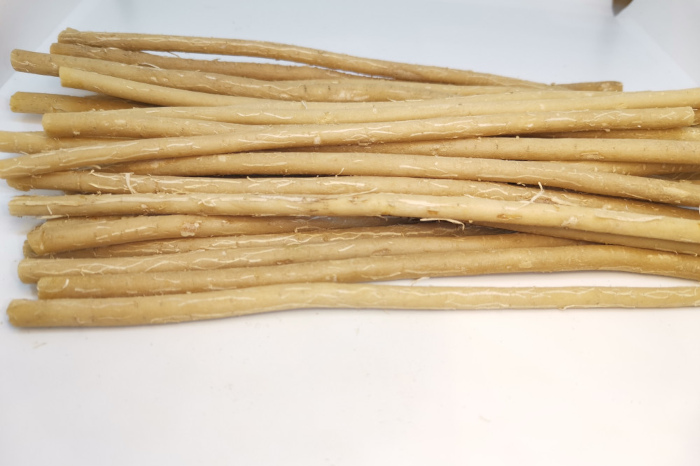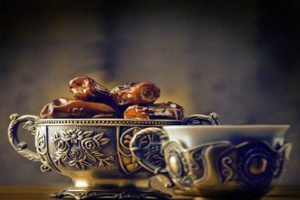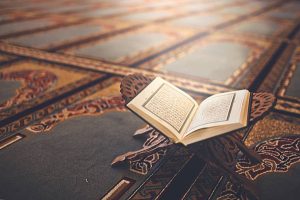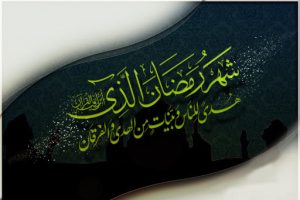 1. Before and after eating.
1. Before and after eating.
عن أبي هريرة رضي الله عنه أن رسول الله صلى الله عليه وسلم قال إن كان قاله لولا أن أشق على أمتي لأمرتهم بالسواك مع الوضوء وقال أبو هريرة رضي الله عنه لقد كنت أستن قبل أن أنام وبعد ما أستيقظ وقبل ما آكل وبعد ما آكل حين سمعت رسول الله صلى الله عليه وسلم يقول ما قال (مسند أحمد، الرقم: ٩١٩٤)[1]
Hazrat Abu Hurairah (radhiyallahu ‘anhu) reports that Hazrat Rasulullah (sallallahu ‘alaihi wasallam) said, and most certainly he had said, “Had it not been for the fear of my Ummah experiencing difficulty, I would have certainly commanded them (and made it compulsory upon them) to use the miswaak at the time of every wudhu (however, using the miswaak is not compulsory but an emphasized sunnah).” Hazrat Abu Hurairah (radhiyallahu ‘anhu) further said, “On account of Rasulullah (sallallahu ‘alaihi wasallam) emphasising the use of the miswaak, I made it a habit to use the miswaak before going to sleep, upon awakening, before eating and after eating.”
2. When one perceives the pangs of death (sakaraatul maut).
عن عائشة رضي الله عنها قالت دخل عبد الرحمن بن أبي بكر ومعه سواك يستن به فنظر إليه رسول الله صلى الله عليه وسلم فقلت له أعطني هذا السواك يا عبد الرحمن فأعطانيه فقصمته (وفي رواية وطيبته) ثم مضغته فأعطيته رسول الله صلى الله عليه وسلم فاستن به وهو مستند إلى صدري (صحيح البخاري، الرقم: ٨٩٠)
Hazrat Aaishah (radhiyallahu ‘anha) reports, “(When Hazrat Rasulullah (sallallahu ‘alaihi wasallam) was about to pass away,) my brother, Abdur Rahmaan (radhiyallahu ‘anhu), entered the room with a miswaak which he was using to clean his teeth. The mubaarak sight of Rasulullah (sallallahu ‘alaihi wasallam) fell on the miswaak (but due to weakness, he was unable to ask for it. I understood that Hazrat Rasulullah (sallallahu ‘alaihi wasallam) wished to use the miswaak at this time), so I said to my brother, ‘O Abdur Rahmaan, lend me your miswaak.’ I took it from him, broke off the top portion, (cleansed it, softened it,) and then gave it to Hazrat Rasulullah (sallallahu ‘alaihi wasallam). Hazrat Rasulullah (sallallahu ‘alaihi wasallam) then used the miswaak while he was reclining on my chest.”
3. If one had made wudhu earlier and the time of salaah approaches, then it is mustahab for one to use the miswaak for salaah to remove any odour from the mouth. Similarly, it is mustahab to make miswaak when joining a gathering.[2]
4. When making tayammum due to illness, or water not being available or being insufficient, one should cleanse one’s mouth with miswaak and perform salaah.[2]
[1] قال الهيثمي: رواه أحمد ورجاله ثقات (مجمع الزوائد، الرقم: ١١١٩)
[2] كما يندب لاصفرار سن وتغير رائحة وقراءة قرآن
قال العلامة ابن عابدين رحمه الله … قال في إمداد الفتاح وليس السواك من خصائص الوضوء فإنه يستحب في حالات منها تغير الفم والقيام من النوم وإلى الصلاة ودخول البيت والاجتماع بالناس وقراءة القرآن لقول أبي حنيفة إن السواك من سنن الدين فتستوي فيه الأحوال كلها اهـ وفي القهستاني ولا يختص بالوضوء كما قيل بل سنة على حدة على ما في ظاهر الرواية وفي حاشية الهداية أنه مستحب في جميع الأوقات ويؤكد استحبابه عند قصد التوضؤ فيسن أو يستحب عند كل صلاة اهـ وممن صرح باستحبابه عند صلاة أيضا الحلبي في شرح المنية الصغير وفي هدية ابن عماد أيضا وفي التتارخانية عن التتمة ويستحب السواك عندنا عند كل صلاة ووضوء وكل ما يغير الفم وعند اليقظة اهـ فاغتنم هذا التحرير الفريد (رد المحتار ١/١١٤)
 Ihyaaud Deen An Effort to Revive Deen in Totality
Ihyaaud Deen An Effort to Revive Deen in Totality



